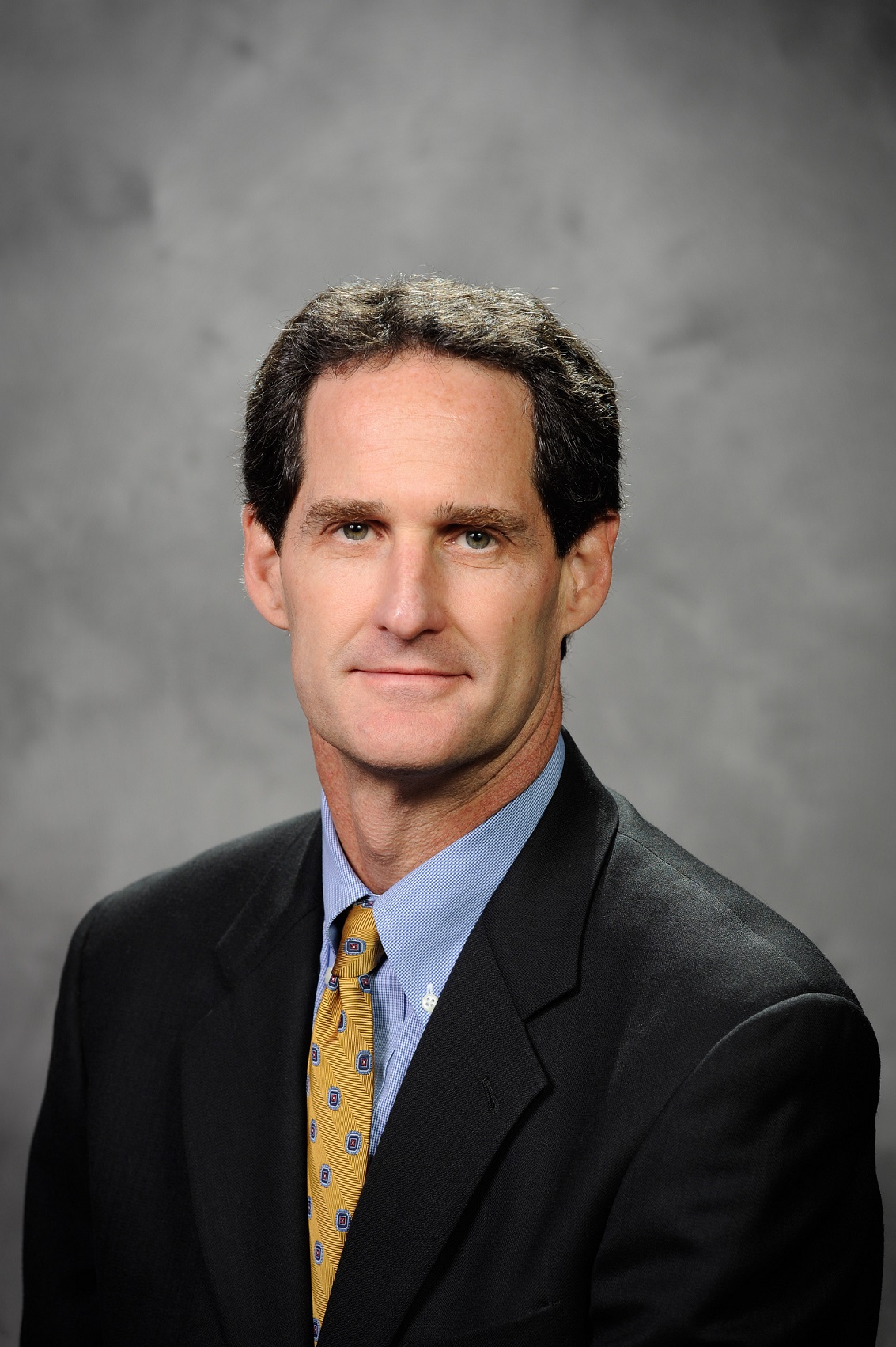Dr. Battey was named to this position after serving as co-CEO with Les Donahue in 2015.
Dr. Battey is also a practicing vascular surgeon with Piedmont Heart Institute. He plans to continue clinical practice on a scaled back schedule.
Here Dr. Battey discusses challenges, his goals for the hospital and his daily routine.
Note: The following responses were lightly edited for length and clarity.
Question: What’s a challenge you’re facing as CEO?
Dr. Patrick Battey: We’re increasingly constrained with our capacity limitations. We’ve got some very strong service lines that continue to grow, bringing people into our sort of urban campus for tertiary and quaternary care, and we just have no room. We’ve been on diversion for medical/surgical beds, telemetry beds and ICU beds 80 percent of the time for the last three months, which means the only time we have beds are on Saturday and Sunday. So leading into that, we are embarking on a major facility expansion plan, and it is falling on me to help coordinate that. That’s rather a large challenge to undertake.
Q: How do you approach the CEO role as a physician?
PB: When I get here every morning about a quarter to 7:00, I always go by the operating room to see what’s going on, to talk to the staff — anesthesia, nursing staff — to see how constrained we are with our capacity. It gives me a window into the operations of the hospital that I think is pretty invaluable, to find out some of the things that we’re asking our staff to do, what sort of pressures it’s placing on them. It’s a real presence. It’s a great way for me to stay in touch with what happens on a daily basis on the floor.
Q: What was the last memorable thing you read?
PB: Over the holidays, I read All the Light We Cannot See by Anthony Doerr. It’s a story about a young, blind French girl and an orphaned German boy who are sort of running parallel tracks dealing with the horrendous conditions during World War II, and their paths come together on the coast of Nazi-occupied France. And in spite of all the things that happen to them, they wind up trying to help each other, which is reflective of people trying to help each other throughout these horrible times. Just a very moving story. The imagery is incredible through the eyes of a young girl who went blind when she was maybe 3 or 4 [years old]. She still remembers some of her old environment and has to become accustomed to a new environment in another city.
Q: What is one of your daily routines?
PB: I like to go to spin class every morning at 5:30. Before that, my wife and I — we like to do ballroom dancing. We’ll actually get up and practice the tango or the salsa or the cha cha. One thing I do on a professional [level] would be the rounding in the operating room every morning. I still operate half-a-day a week, so I have my own cases. But I always try to go by on the days when I’m not operating and find out how the nurses are staffed, what’s going on with their world, what’s going on with anesthesia and what’s going on with the admissions side of it.
Q: What are your goals for Piedmont?
PB: To be the destination referral center really in the Southeast for some tertiary and quaternary service lines — cardiovascular services, transplant, sort of orthopedics and neurology and spine in particular. So from a growth standpoint, or from a market standpoint, that would be No. 1. From an overall [standpoint], I would like to see us reduce our harm rate to zero so nobody in our hospital leaves with something they didn’t come in with.
Q: What is one phrase you think we should use more in healthcare?
PB: Put the patient first.
